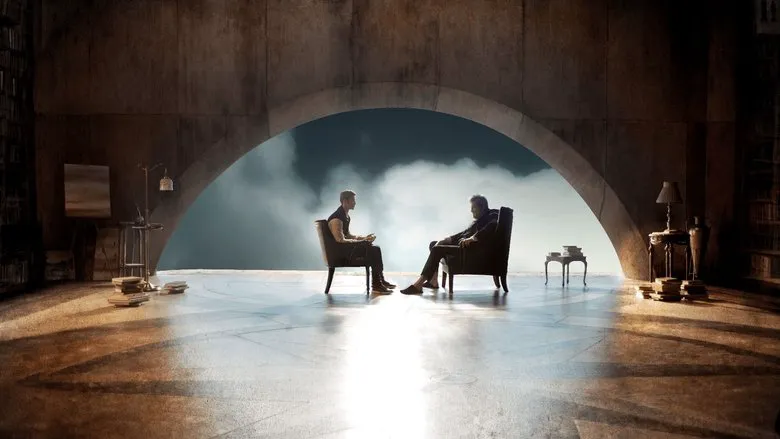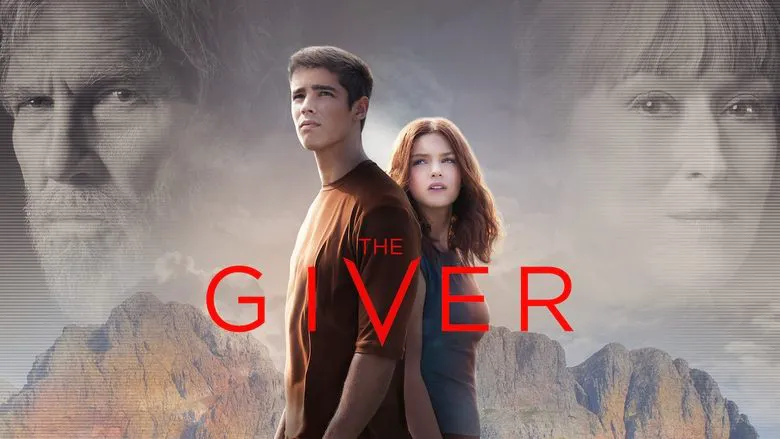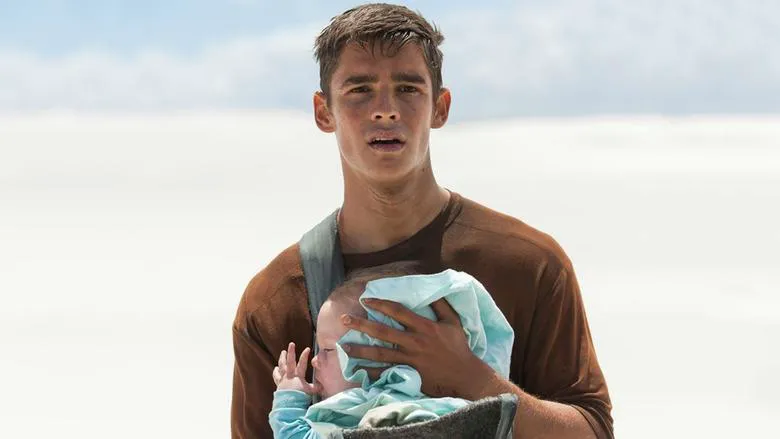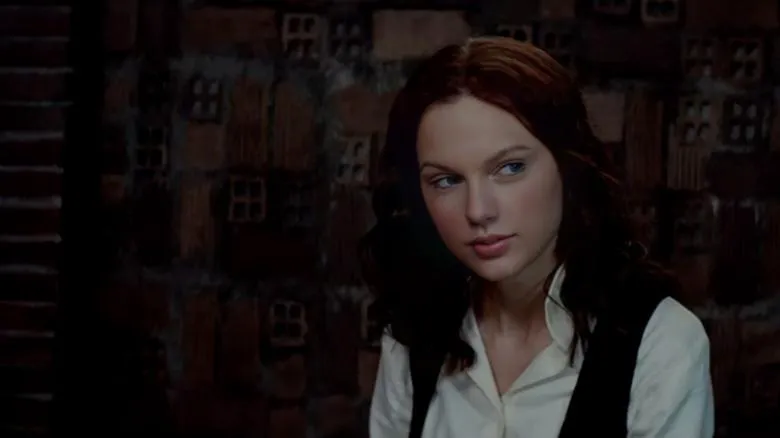The Giver: A Dystopian Tale That Falls Short of Expectations
While it doesn’t reach the heights of “Gattaca,” “The Giver” manages to hold its own among similar young adult films, though it doesn’t particularly stand out either.
The story unfolds in a future society striving for a world devoid of war, conflict, division, and differences. These new communities are built upon strict rules, with individuals assigned professions and roles from childhood. However, even within this sterile and predictable society, a young man named Jonas emerges, possessing a unique ability to perceive more than others. He is chosen to become the Receiver of Memories. As he undergoes the initial process of experiencing emotions that are absent in his fellow citizens, Jonas realizes that no amount of societal benefits or perfect order can replace love, music, and laughter. He then embarks on a mission to change the status quo.

It took over fifteen years from the acquisition of the film rights to the novel to the start of filming, with The Weinstein Company’s interest in the project serving as the catalyst.
Riding the Young Adult Dystopian Wave
Who wouldn’t want to replicate the success of “Twilight” or “The Hunger Games”? To tap into the trend of young adult post-apocalyptic stories, blending romance with the intensity of first love, or mysticism that contrasts with relatable earthly emotions. How many attempts have we witnessed to ride this wave? “Ruby Red” and “Beautiful Creatures,” “The Host” and “Divergent,” the series “The 100” and “Vampire Academy” – yet none have come close to achieving the success of Katniss Everdeen and Bella Swan. Now, we have a new contender: “The Giver.”

Twenty-four-year-old Brenton Thwaites played Jonas, who was a thirteen-year-old teenager in the novel, at the request of Jeff Bridges. The actor felt that it was important for the film to capture the spirit of the novel, rather than a factual correspondence to it.
Familiar Themes, Different Perspective
Philip Noyce’s new film shares many similarities with its predecessors and competitors. Once again, we encounter a post-apocalyptic future society that builds its prosperity through questionable means. There’s the mystery surrounding the origins and reasons for being “chosen,” and the familiar theme of teenage rebellion and the desire to dismantle the adult world “to its foundations, and then…”. However, there’s a significant difference: “The Giver” places an unusual hero at the forefront for this genre – a young man. Typically, these films place the burden of trials on the shoulders of fragile young women. This substitution creates a strange impression. We’re accustomed to seeing the heroines of other films discover new and extraordinary powers within themselves, transforming into fierce warriors. However, Jonas from “The Giver” doesn’t transform; he simply becomes himself. A rather dull version of himself.

This is the central theme of “The Giver,” a novel by American author Lois Lowry, which serves as the basis for the screenplay. The novel isn’t about the threats of the future, a world after nuclear war, a global epidemic, or an alien invasion. It’s about what makes our present lives meaningful, about our memories, and about emotions, both positive and negative. The film dedicates significant attention to memories, contemplating whether we only need bright, memorable moments or if the memory of losses and tragedies is equally important. Should we shield ourselves from the harsh experiences of human wars, or does absorbing the horrors, misfortunes, and bloodshed of multiple generations make us human? These are intriguing questions worthy of serious discussion. Unfortunately, “The Giver” stumbles upon the harsh, mercenary world of Hollywood, which has little patience for philosophy and sentimentality. Lowry’s book is a slow-paced, almost meditative read, which wouldn’t appeal to modern teenagers. The filmmakers believed that the film needed more action, resulting in a disastrous imbalance. “The Giver” transformed from a parable about the human within us into a generic teenage summer blockbuster with an underdeveloped world, rushed character motivations, and a dubious method of “global healing.” While readers might grasp some of the underlying themes, casual viewers will likely be perplexed by the conclusion that “To restore everyone’s memories, you need to climb over a fence.”

A Missed Opportunity
It’s not a matter of pinpointing specific missteps by the screenwriters, director, or actors. Rather, the blandness (metaphorically speaking, as the visuals are fine) of “The Giver” is the result of a collective miscalculation. The screenwriters didn’t fully develop the universe, Noyce proved too detached for the youth, and the actors’ efforts feel futile. Yes, Jeff Bridges is, as usual, excellent as the grumpy old man, and Meryl Streep is, as always, head and shoulders above the rest. However, they simply don’t have the opportunity to showcase their full range of acting abilities. Brenton Thwaites hasn’t yet found his footing and hasn’t progressed much beyond the capabilities of someone like Logan Lerman.
As a result, “The Giver” feels like a draft, a trial run, a rehearsal where everyone, except for the author of the original book, cut corners. This would be justifiable if the film were the first step in a large franchise. However, the literary sequels to “The Giver” focus on entirely different characters. Furthermore, how many of the aforementioned competitors have managed to take a second step? “Divergent,” planned as a trilogy regardless of its results, and “The 100,” which was extended on television due to a lack of alternatives despite its appalling quality? As you can see, making a splash in the future is a simple task; surviving is much more difficult. Sadly, “The Giver” lacks the very color and emotions that the film attempts to convey to the audience. Without these elements, its future may never arrive.